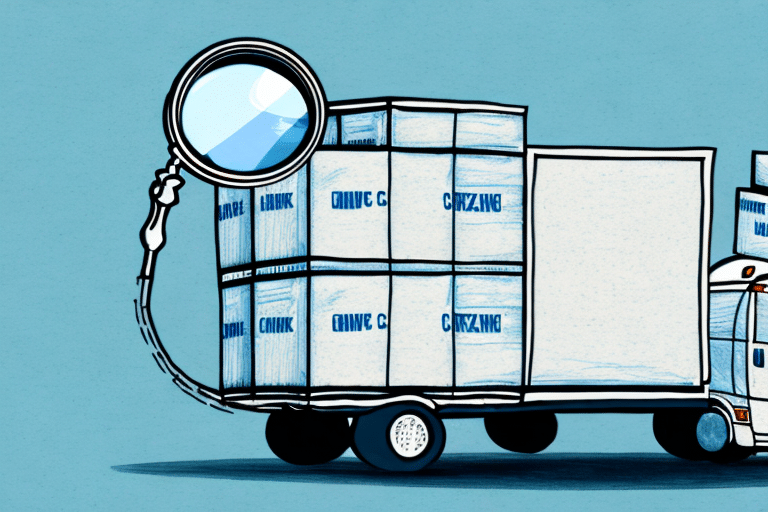A Comprehensive Guide to Freight Bill Auditing
Freight bill auditing is an essential process for businesses utilizing freight and logistics services. It involves a meticulous review and analysis of all freight bills and related shipping documents to ensure each line item is accurate, preventing overpayment to carriers. Given the complexity and precision required, many businesses opt to engage specialized freight bill auditing companies to manage this critical task effectively.
Importance of Freight Bill Auditing
Ensuring Financial Accuracy
Freight bill auditing helps businesses avoid significant financial losses by identifying errors and discrepancies such as incorrect rates, missed discounts, overcharges, duplicate invoices, or incorrect weight measurements. According to a PwC Transportation and Logistics Survey, companies can recover up to 3% of their total transportation spend through effective auditing practices.
Maintaining Compliance
The transportation industry is subject to stringent regulations. Freight bill audits ensure compliance with industry standards, including safety protocols, environmental regulations, and labor laws, thereby avoiding hefty fines and legal complications. The Federal Railroad Administration provides guidelines that audited records can help adhere to.
Optimizing Supply Chain Operations
By analyzing freight bills, businesses can identify shipping patterns and trends that aid in optimizing their supply chain. This data-driven approach facilitates better rate negotiations with carriers and informed decision-making regarding shipping strategies, leading to reduced costs and enhanced efficiency.
Types of Freight Bill Audits
Pre-Audit
A pre-audit is conducted before carrier payments are made. It involves verifying the accuracy of the bill of lading, carrier invoices, and other related documents to ensure all charges are correct.
Post-Audit
Post-audit occurs after carrier payments have been issued. It focuses on reviewing invoices to detect any discrepancies or overcharges that may have been missed during the pre-audit phase.
Ongoing Audits
Some businesses implement continuous auditing processes throughout the year to monitor carrier performance and quickly address any issues that arise, ensuring consistent accuracy and efficiency in freight management.
Benefits of Implementing a Freight Bill Audit Program
Cost Recovery and Reduction
Freight bill auditing can recover overcharges and reduce overall transportation costs. A study by Accurate found that businesses can save between 2-5% on their freight spend through diligent auditing.
Enhanced Accounting Accuracy
Accurate auditing ensures that only legitimate charges are recorded, improving the integrity of accounting records and facilitating better financial management.
Improved Carrier Relationships
Maintaining accurate and timely payments fosters trust and strengthens relationships with carriers, which can lead to better service levels and more favorable rates.
Regulatory Compliance
Adhering to industry regulations through regular audits helps businesses avoid non-compliance penalties and ensures smooth operational continuity.
Streamlined Operations
Automation of the auditing process reduces administrative burdens, allowing teams to focus on strategic tasks while gaining greater visibility into transportation expenditures.
Challenges in Freight Bill Auditing and Solutions
Obtaining Accurate Data
One common challenge is accessing timely and precise data from carriers. Partnering with third-party logistics providers specializing in freight bill auditing can enhance data accuracy and availability.
Identifying Billing Discrepancies
Root causes of billing errors can be difficult to pinpoint. Implementing standardized communication protocols and standardized billing processes can aid in minimizing inconsistencies.
Managing High Volume of Invoices
Handling a large number of invoices can be overwhelming for businesses with limited resources. Utilizing automated auditing software can efficiently manage and process high volumes, ensuring accuracy and saving time.
Visibility into Carrier Performance
Lack of insights into carrier performance can hinder optimization efforts. Transportation management software that offers real-time tracking and comprehensive reporting can provide the necessary visibility to make informed decisions.
Best Practices for Successful Freight Bill Audits
Set Clear Expectations
Establishing clear auditing guidelines and expectations with carriers ensures mutual understanding and reduces the likelihood of discrepancies.
Validate Shipping Data
Regularly verifying the accuracy of shipping data helps maintain consistency and reliability in billing processes.
Maintain Organized Records
Keeping comprehensive and well-organized records facilitates efficient auditing and simplifies the resolution of any disputes that may arise.
Leverage Automated Software
Implementing automated freight bill auditing software enhances accuracy, speeds up the auditing process, and reduces the chance of human error. Solutions such as Transporeon offer robust features for effective auditing.
Foster Strong Communication Channels
Maintaining open and effective communication with carriers helps quickly address and resolve any issues identified during the auditing process.
Continuous Improvement
Regularly reviewing and updating auditing procedures ensures they remain effective and adapt to any changes in the industry or business operations.
Leveraging Technology in Freight Bill Auditing
Automation and AI
Technological advancements such as artificial intelligence and machine learning are revolutionizing freight bill auditing by rapidly identifying discrepancies and irregularities, thereby enhancing efficiency and accuracy.
Big Data and Analytics
The utilization of big data allows businesses to uncover patterns and trends that inform smarter logistics decisions, optimize transportation spend, and improve carrier relationships. According to a report by McKinsey & Company, companies leveraging big data in logistics can achieve cost savings of up to 20%.
Blockchain Technology
Blockchain is emerging as a secure method for facilitating payments and verifying transactions in freight bill auditing, ensuring transparency and reducing the risk of fraud.
Measuring the Success of Your Freight Bill Audit Program
Key Performance Metrics
- Total Overcharges Recovered: The amount of money saved by identifying and correcting billing errors.
- Cost Savings Achieved: Overall reduction in transportation costs due to efficient auditing.
- Audit Accuracy Rate: The percentage of audits that accurately identify discrepancies.
- Carrier Response Time: How quickly carriers address and resolve issues identified in audits.
- Number of Discrepancies Discovered: The total count of billing errors detected during audits.
Invoice Audit Percentage
Monitoring the percentage of invoices audited ensures that a sufficient volume is being reviewed to detect potential errors without overburdening auditing resources.
Choosing the Right Freight Bill Audit Software
Automation Capabilities
Select software that automates as much of the auditing process as possible, reducing manual labor and increasing efficiency. Tools like EDDIE offer comprehensive automation features tailored for freight auditing.
Integration and Compatibility
Ensure the software integrates seamlessly with your existing systems, such as your Transportation Management System (TMS) or Enterprise Resource Planning (ERP) software.
Reporting and Analytics
Choose software that provides robust reporting and analytics capabilities, enabling you to gain actionable insights from your freight data.
Scalability
As your business grows, the auditing software should be able to scale accordingly, handling increased volumes of invoices and more complex auditing requirements.
Customer Support
Opt for vendors that offer comprehensive training and ongoing support to ensure your team can effectively utilize the software and address any issues promptly.
Strategic Outcomes of Freight Bill Auditing
Negotiating Better Rates with Carriers
Audit results provide valuable data for negotiating improved rates with carriers. Presenting accurate billing data and demonstrating a commitment to fair practices can lead to more favorable contracts and enhanced service levels.
Future Trends and Innovations
The freight bill auditing landscape is evolving with trends such as real-time visibility and tracking solutions becoming integral. Technologies like blockchain and advanced analytics are expected to further streamline auditing processes and enhance data security.
Real-Life Success Stories
Case studies highlight the tangible benefits of effective freight bill auditing. For example, a large food and beverage company recovered over $500,000 in overcharges through a thorough audit, while a manufacturing firm achieved a 99% billing accuracy rate and a 10% reduction in freight costs.
In summary, implementing a comprehensive freight bill auditing program can significantly enhance your business's financial accuracy, compliance, and operational efficiency. By leveraging advanced technologies, adhering to best practices, and continuously measuring success, businesses can optimize their freight management processes, reduce costs, and strengthen carrier relationships.




















